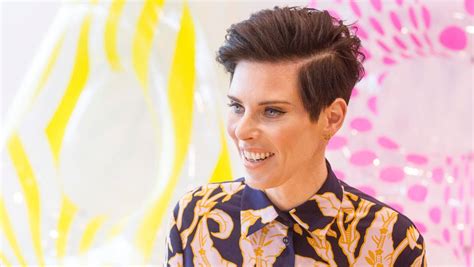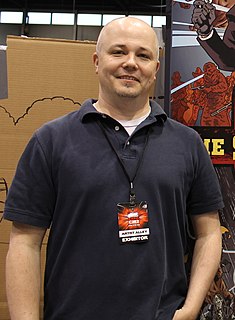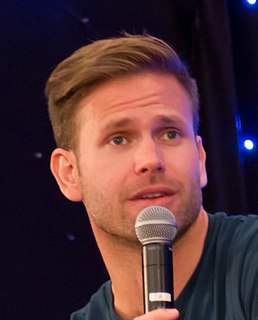A Quote by W. Bruce Cameron
With social media, you don't just publish a book and figure you've done your part; your fans want to talk to you, have a conversation. It means, though, that you can connect with your readers like never before, so you don't have to guess what they like - you can ask.
Related Quotes
Sometimes I forget what I put in. I want to capture things in that way, where you're looking into your memory, a dream or hallucination. The characters become a mixture of archetypes, [and] that's what I like. You're trying to figure it out and your brain wants to categorize things, but it can't because of this motion. You want to solve the problem, but it never gets solved. It's like when you read a really good book and the story never leaves you.
Not just any talk is conversation; not any talk raises consciousness. Good conversation has an edge: it opens your eyes to something, quickens your ears. And good conversation reverberates: it keeps on talking in your mind later in the day; the next day, you find yourself still conversing with what was said. That reverberation afterward is the very raising of consciousness; your mind's been moved. You are at another level with your reflections.
Growing up in the social media world, it's tough. Your face changes, you get older, your face fills out, and you fall into liking makeup and different stuff like that. And for people saying that, for the most part - it would kind of hurt my feelings when you haven't done anything. You just kind of have to keep being yourself and move forward with what you love.
We have to connect to our fans through the media, and when you talk about that, it's got to come from your heart. And when it comes from your heart, it has to be absolutely consistent. There's a big risk you take without an interpreter because, as professional baseball players, we are here to perform baseball, not to learn a language.
Television is interesting, in that the pace is quicker and you can see your work more quickly than with movies. And then, with the added social media aspect, you can access that relationship to the fans directly and you have control of the content of what you say, your perspective, your opinions and your ideas.


































